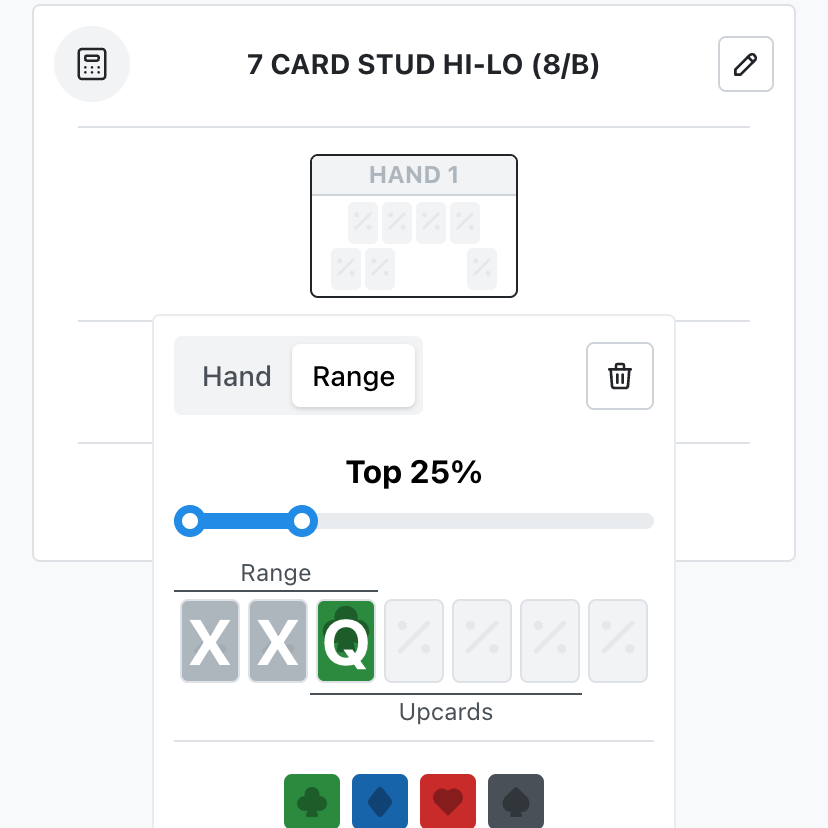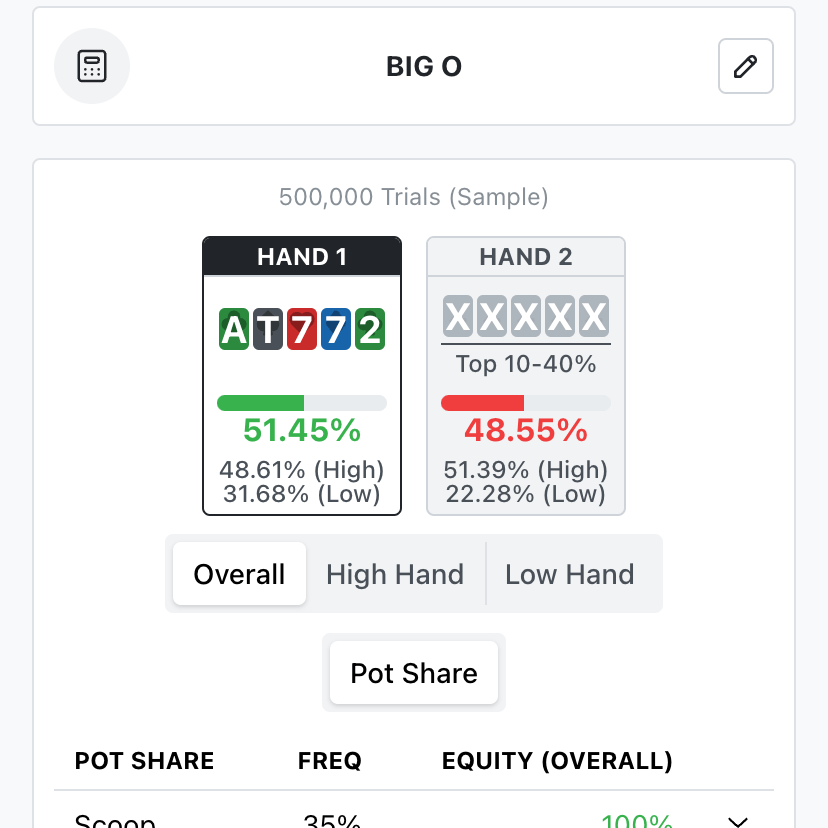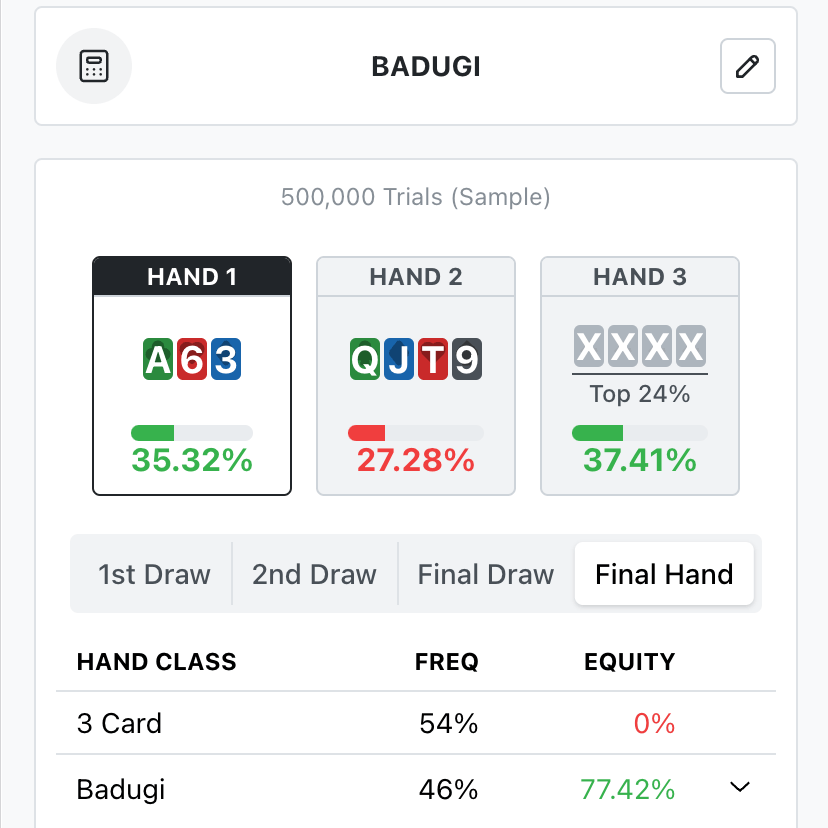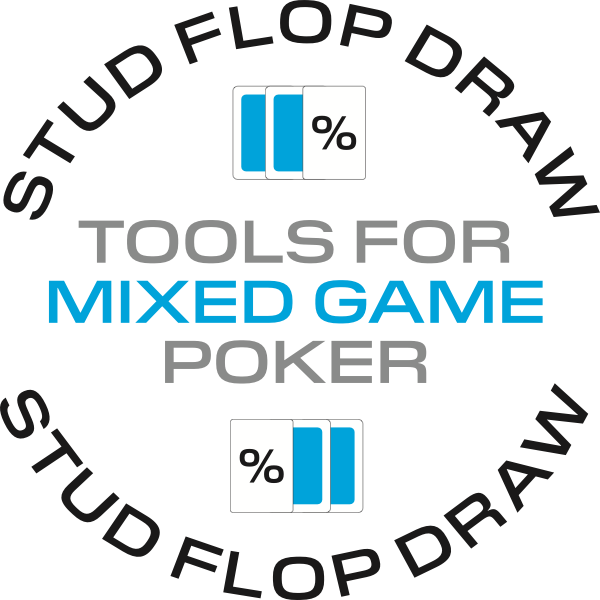Modern tools for mixed game poker
Cacluate odds, explore ranges and view detailed statistical analysis for 17 variants of poker and counting – including every game played at the 2025 World Series of Poker
How It Works

Run a Simulation
Set up a statistical trial in any game state for any number of fixed hands or ranges

Explore Results
Analyze frequencies and equities for dozens of scenarios in every hand

Build a Strategy
Use the insights to make optimal decisions & maximize your EV in every game
Supported Games
Stud
7 Card Stud
7 Card Stud Hi-Lo 8/B
7 Card Stud Hi-Lo (Regular)
Razz
2-7 Razz
Flop
Omaha Hi
Omaha Hi-Lo 8/B
5 Card Omaha Hi
Big O (5 Card Omaha 8/B)
Hold’em
6 Card Omaha Hi*
6 Card Omaha Hi-Lo 8/B*
Draw
5 Card Draw High
2-7 Lowball (Single Draw)
2-7 Lowball (Triple Draw)
A-5 Lowball (Triple Draw)
Badugi
Badeucy
Badacy
Archie (66+)*
Archie (99+)*
* In Development
Frequently Asked Questions
Any poker player can gain insights and improve their game from these tools.
If you have experience in No-Limit Hold’em but are new to mixed games, this can help you understand starting hand values and equities to build a sound strategy for how to play a game.
If you’re already one of the world’s best triple draw players, this can help you check your work in any infrequent/unintuitive spots that may come up (ex: exploring the equity differences between breaking vs patting convertible hands in multiway pots).
For flop and stud games, we run exhaustive enumerations of boards where practical (ex: two fixed starting hands) and Monte Carlo simulations where that is infeasible (ex: top 10% vs top 50% of Big O starting hands).
For draw games, in addition to dealing the cards and determining the winning hands, our algorithm also makes decisions about which cards to keep or discard on each street. To do so, we define a set of situations (number of opponents, positions, number of draws remaining, assumption about opponent range) and pre-build decision trees that solve for which kept card combination maximizes the overall expected value of each hand. We then use these decision trees to run a simulation and calculate odds where all hands always make the best draw decision.
Not really, no. While we have produced solutions for some situations (ex: pure EV based draw decisions), we do not provide any answers for in-game actions (ex: whether to make a bet/call/fold) at this time.
Stud Flop Draw was founded with the goal of producing a next-gen poker AI that can reason about any situation in any poker game. It will likely look quite different from today’s No-Limit Hold’em solvers. This equity engine is the first step in a multi-year journey to get there.
Yes. All calculations are done on our servers, and the full web experience is optimized for mobile devices.
If you sign up for our waitlist we will be in touch as soon as the product is ready for wider availablilty (later in 2024).
If you’d like access sooner, connect with us on Twitter or share who you are & what you are hoping to use the tool for.
It’s free (for now). Service during the private beta is being provided at no cost. One of the goals of the beta is to collect user feedback and better understand what features/pricing will create the most compelling product over the long term.
No. The beta service is for personal use only. Do not share your access, or use the software or data to produce any commercial content or derivative products.
